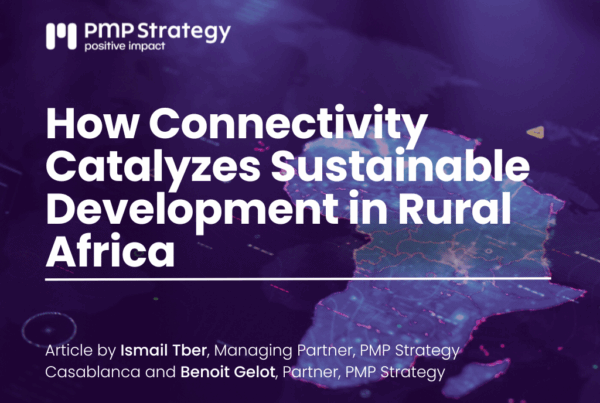In this series of articles, Eric Dupont and Philippe Angoustures, partners at PMP, examine how the experience of difficult conditions at sea can be useful to managers in the current crisis.
Stay the course…
This period of confinement is conducive to… virtual meetings. Thus, I recently had the chance to exchange with Samantha Davis, skipper of Initiatives-Cœur, thanks to a talk organized by the Shack team who are impatient to welcome us to her new space in the heart of Paris.
This ocean racing specialist, more used to confinement in the narrow cockpit of her boat than on land, shared some of her recipes for setting and staying the course.
What race strategy?
When preparing for the Vendée Globe, a solo round-the-world race, the objective and the rules of the game are clear: leave and return from Les Sables d’Olonne without assistance and without stopover. The skippers know the scale of the challenge and the associated risks. They also know the main difficulties to be faced such as:
- “The Doldrums”, a windless area around the equator in which sailors can find themselves trapped for days while having to deal with very sudden and violent storms;
- “The roaring forties” or “Fiftieth howling” area in the southern hemisphere between the 40th and 50th parallel, known for its storms and high waves of 10 meters with a marine diction said “under 40 degrees, it n there is no more law, but under 50 degrees there is no longer God. “
What is more, their boats are all monohulls respecting a precise gauge. So how can we explain that on average only 50% of participants reach the finish line and that the last ones take 70% longer than the first ones?
This is where the racing strategy comes in. The sailor, like the manager, knows his objective, he sets himself from the start a strategy which is a fair balance between risk-taking and safety in order to optimize performance. On the other hand what he does not know are the meteorological conditions he will have to face, the weather files give him indications but their reliability decreases rapidly beyond a week. The skipper is therefore constantly adjusting his trajectory to take advantage of external conditions, the condition of his boat but also the route chosen by his competitors. So Samantha explained to us that in the race she does not try to plan for more than 3 weeks, she focuses on what she can control, on a time horizon on which she can act,she adjusts her course from day to day and is fine-tuning her boat to optimize her performance.
Likewise in this troubled period, the Manager must not abandon his strategic objective but be in a fine management of his performance, he must constantly adjust his action plan, be in the anticipation but not in the speculation. He too must be in the “fine tuning” to ensure the safety of his teams while maximizing performance.
We can bet that as for Samantha if “managing uncertainty is at the heart of the adventure, when you get out of it the adrenaline is even stronger”.
The organization and the pleasures of everyday life
Alone on a boat with a few sails to adjust and a course to hold, we can tell ourselves that Samantha has plenty of time to organize herself. In fact, as for the Manager confined in front of his screen, permanently in conf-call, his days pass extremely quickly. She must not neglect any detail, not put off until tomorrow what she can do the same day. To avoid letting herself be “put to sleep” by days that are all alike, or even discouraged in times of doubt, Samantha sets herself very precise daily checklists integrating both the analysis of meteorological data, as well as the controls and settings on the boat without forgetting the necessary rest times to last.
Samantha also insists on the need to establish a certain number of rites corresponding to as many moments of pleasure. For example, once a week she offers herself a moment of gluttony that reminds her of the pleasures of everyday life on land. She also seeks, particularly in hard times, to always ask herself what is positive because “we go faster with pleasure and the positive”.
Give sense
Since 2017 Samantha Davis has been at the helm of Initiative-Cœur, a project combining sports sponsorship and patronage for the Mécénat Chirurgie Cardiac association which allows children suffering from heart defects to be welcomed and cared for in France. This young mother has been entrusted with the helm of the boat by another skipper, Tanguy Lamotte, who has decided to put her career on hold to devote herself to her family life.
Does enrolling in a project with a humanitarian goal make it more efficient? Samantha did not broach this subject, perhaps out of modesty, perhaps because it is not the main thing.
The same is undoubtedly true in our companies. Should we show off the meaning of our projects to improve our performance or on the contrary put performance at the service of meaning?
A good question to ask in these times of crisis.




